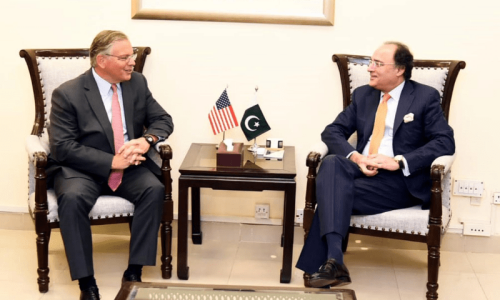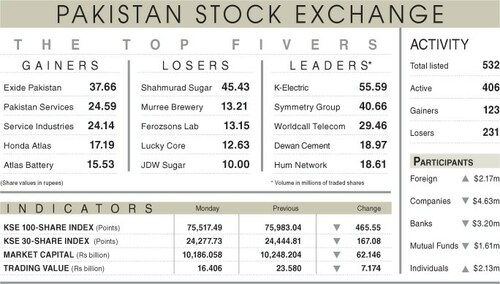KARACHI, Dec 2: Finance Adviser Shaukat Tarin said on Tuesday that the government was operating on a modern concept of associating all stakeholders in planning and implementation and also a periodic review of how the plans were being implemented.
“Modern management concepts are being introduced in government,” the adviser said while inaugurating the 11th Management Association of Pakistan (MAP) Convention 2008 here.
He said the government faced a challenge of unprecedented nature and was almost in an “act or die” situation when it was voted into power.
“The government accepted the challenge and acted to overcome the crisis,” he informed the audience while recalling that the fiscal deficit at one time last fiscal year had touched almost 10 per cent level.
It ended at 7.5 per cent fiscal deficit and 8.4 per cent current account deficit.
He added that when the government took over, the world had come under impact of an unprecedented global financial crisis and Pakistan’s access to international finance market was also blocked.
The government took tough decisions of cutting down heavily on energy subsidies to contain expenditure budget and narrow down budgetary imbalance and reduce dependence on State Bank of Pakistan borrowing.
“The rupee-dollar parity had gone up from Rs62 to
Rs84 and foreign exchange reserves had dropped down to a level where these were sufficient for hardly few weeks import when I took over as adviser,” he recalled.
“We went to International Monetary Fund with our home-grown strategy to stabilise the economy in the short- and long-term,” he said.
Mr Tarin raised a question before his audience as to why Pakistan confronts an economic crisis after every decade.
His own answer to this question was to prepare a long-term plan with consultation of stakeholders and then a periodical review.
It is in context of this concept, he said, the Planning Commission is being given a new shape by brining all stakeholders — intellectuals, all relevant government agencies and private sector — at one table to prepare a strategy.
He said the nine-point agenda on which the government was working was a consensus strategy. It would be reviewed quarterly by a body headed by the prime minister.
The nine-point agenda takes care of budgetary and current account imbalance, raising tax-to-GDP ratio to 15 per cent in next five years, provision of safety nets for the poor that include direct government intervention in the form of Benazir Income Support Programme, protecting budgetary allocations for education and health, promotion of productive sector agriculture and industry.
He said the trade and industry were fragmented and needed consolidation which was being taken up.
He blamed all previous governments of ignoring agriculture which has brought down its productive capacity.














































Dear visitor, the comments section is undergoing an overhaul and will return soon.